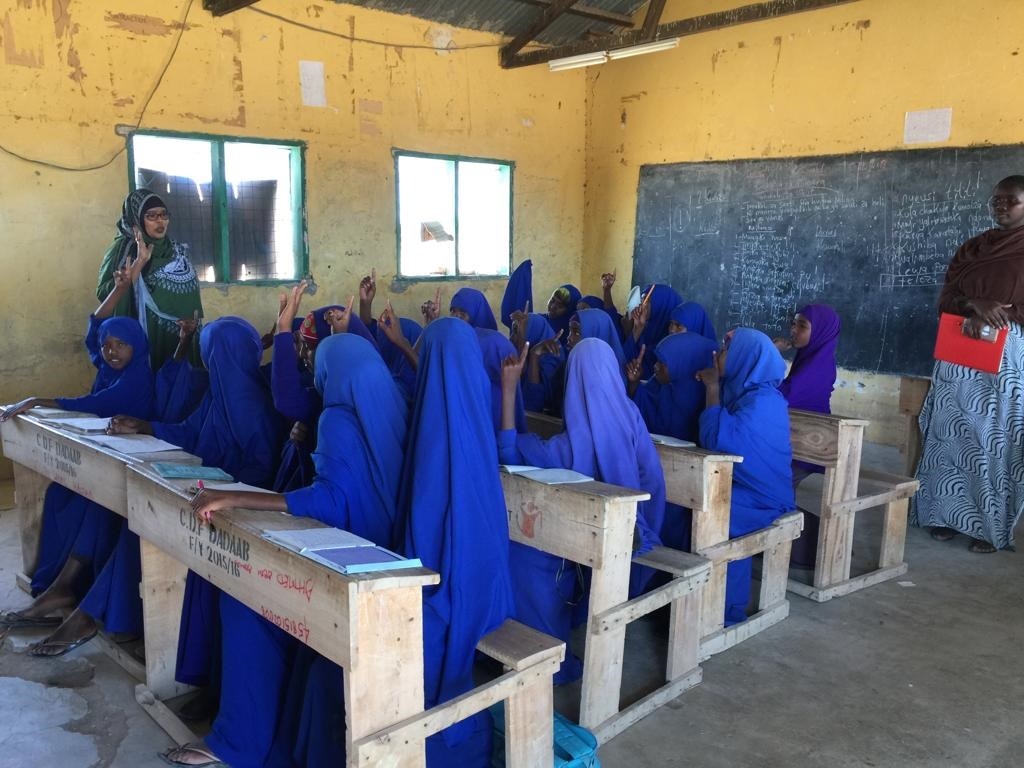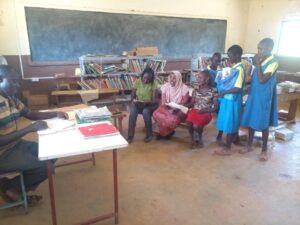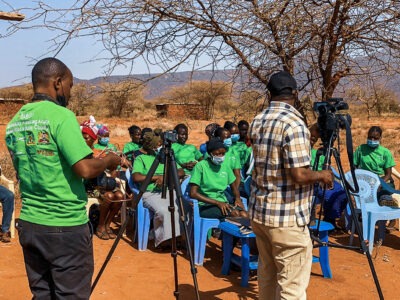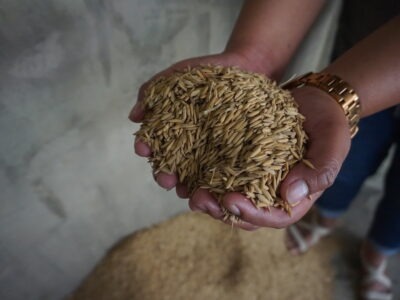
Dressed in her new uniform, Fardosa Boya, 12, walked toward the entrance of the school. It was the beginning of a new term, and this was her first time attending school. Previously, Fardosa had helped take care of her father’s livestock in Kinisa in Northern Kenya’s Marsabit County.
“I am going to school because I want to improve my life and the life of my family,” Fardosa said. Many young girls living in Northern Kenya face cultural practices and beliefs that present gender-based challenges, such as dropping out of school, early pregnancy, and forced marriage. Through Mercy Corps’s Girls Improving Resilience with Livelihoods (GIRL) model, the Feed the Future Kenya Livestock Market Systems Activity, implemented by ACDI/VOCA and partners the BOMA Project, Mercy Corps, and Smart Regional Consultants, is helping inform adolescent girls between the ages of 10 and 19 about the benefits of attending school. Girls who express an interest in attending school receive uniforms and supplies through the Activity, funded by the United States Agency for International Development.
The Activity leads the girls through a nine-month safe-space training and mentorship program that covers basic literacy and numeracy skills as well as general life skills, financial literacy, livestock management, negotiation skills, environmental awareness, nutrition, and water, sanitation, and hygiene.
“During a safe training that was conducted last year, Fardosa expressed a lot of interest in learning and achieving more in life,” said Sabdio Roba, a GIRL officer for Marsabit County. “Compared to other students, she was quick to learn and was one of the top students in the basic literacy lessons that were provided by the GIRL mentor in her group.”

One of the challenges GIRL officers face is that advocacy around convincing community members to allow girls to attend school takes time. However, by engaging local leaders and roles models, such as female teachers, the Activity has increased the number of young girls enrolled in school in the region. Since the beginning of 2019, 50 girls from Marsabit County, 21 girls from Isiolo County, and 12 girls from Garissa County have enrolled in school because of the Activity’s support. In a community where girls are expected to start performing household chores like herding livestock at an early age, the Activity is making great strides toward shifting gender expectations.
“The challenge we are facing is that the girls really want to go back to school, and their mothers fully support them, but their fathers do not. The cultural belief of the fathers is that girls only have two options: to either live with their fathers or to live with their husbands. We are working toward changing the mindset of the fathers, and we will not give up on the girls.” — Farhia Hajir Hassan, a GIRL officer for Garissa County
In Garissa County, GIRL officers and mentors partnered with county government officials to prevent the marriage of a 13-year-old girl to a much older man, a practice that is common in the region. The girl is now enrolled in grade seven, and her mentor checks in with her often to encourage her to continue her studies.
Through the GIRL model, the Activity aims to reach 16,750 girls in Garissa, Isiolo, Marsabit, Turkana, and Wajir counties to boost the resilience of communities by lowering poverty levels among vulnerable households. Improving girls’ access to education allows these future earners to become more resilient and prepared for economic engagement in the future. The Activity has successfully facilitated the enrollment of 100 girls from five countries to attend school.
Read more about the Feed the Future Kenya Livestock Market Systems Activity.
Read more about our work in Kenya.





